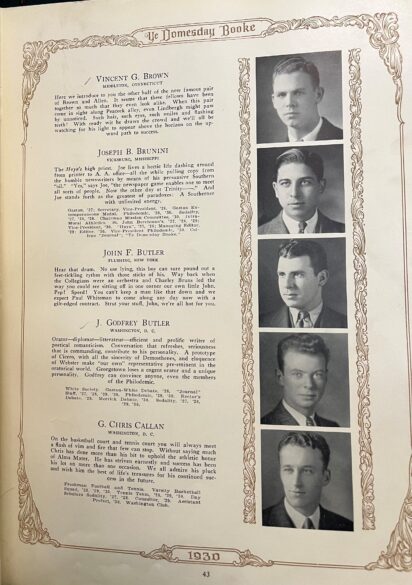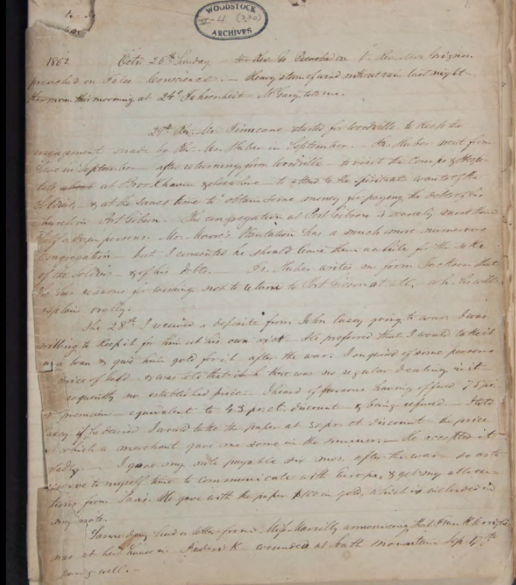From the Archives
By Mary Woodward
JACKSON – Managing the Diocese of Jackson’s historical archive is always an adventure and takes me down many paths to a plethora of requests for great grandparent’s marriage records, decrees of establishing long lost churches, name of saint whose relic is in an altar, and so on. Unfortunately, I cannot always fulfill these requests because the information might not have been recorded or it might not be in the place it is supposed to be according to the index.
I always tell people our diocesan archives do not exist for genealogical purposes or answering various questions from the street; and that as a “lone arranger” it will take a long time before I can even get to their request. Most people are fine with that.

With that being said, working with history and the documentation of it is quite a rewarding adventure. Right now, I am working on developing a project that will look at some pivotal moments in recent history that affected our state, country and church. Recent for people in archives is 75 years or less. I always laugh and cry a little to myself when someone asks for an old baptismal record from 1970.
As part of this still evolving venture, I ran into another research mission that had been initiated more than 10 years ago and had fallen by the wayside as can happen when you get distracted by more pressing matters in church life.
In 2012, as part of exploring possible events to highlight our diocese’s 175th anniversary, I came across a thread that led me to the location of the original handwritten copy of Bishop William Henry Elder’s diary he kept during the Civil War.
Bishop William Henry Elder, a native of Baltimore, studied at Mount St. Mary College in Emmitsburg, Maryland. He graduated in 1837 and entered Mount St. Mary Seminary. Following completion of seminary studies, he was sent to Rome for graduate studies at the Pontifical Urban University where he earned a Doctor of Divinity in 1846.
After his ordination there on March 29, 1846, he returned to Maryland and Mount St. Mary where he served as a professor at the seminary. Eleven years later in 1857, he was named the third Bishop of Natchez by Pope Pius IX. In 1880, he was named co-adjutor Archbishop of Cincinnati.
Upon departing the then Diocese of Natchez in 1880, Bishop Elder took many of his personal papers with him to Cincinnati. His Civil War diary was one of these items. The diary travelled even more making stops in the collections of Mount St. Mary Seminary, Woodstock College, and ultimately the archives of Georgetown University in Washington.
Twelve years ago, I had made contact with the Georgetown archivist, a Jesuit, and worked with him to get the diary in digital format. Bishop R.O. Gerow had created and published a typed version of the diary, but here we had the handwritten version. In the midst of the project which involved complicated file formats for our fledgling digital system, contact was lost, and the project was forgotten.
Recently, while researching the current project mentioned above, I did a side search for the diary in the Georgetown archives special collections. There it was the original handwritten diary available for viewing in PDF format. Soon I’ll have a link to it on our website.
Bishop Joseph Brunini, our eighth bishop and only native son from Vicksburg, went to Georgetown in the late 1920s and graduated in 1930. He was editor of the campus newspaper The Hoya. His brother Ed was The Hoya’s sports editor.
According to the description next to his senior photo in the 1930 Ye Domesday Booke, Georgetown’s yearbook, Joseph B. Brunini was: “The Hoya’s high priest. Joe lives a hectic life dashing around from printer to printer…all the while pulling copy from the humble newswriters by means of his persuasive Southern ‘oil.’”

In his senior year, Bishop Brunini was also vice president of the Philodemic Society, one of the country’s oldest debating societies in the United States and the oldest secular student organization at Georgetown. In fact, Philodemic was marking its centennial in 1930. That’s kind of a big deal.
Like Bishop Elder, upon completion of his collegiate studies at Georgetown, Bishop Brunini was sent to Rome where he finished his seminary studies at the North American College, which at that time was in downtown Rome. He was ordained there on Dec. 5, 1933.
As you can see, exploring archives creates a web of interconnectedness among collections scattered across not only the country but also across epochs of time. It is easy to end up down a different rabbit hole from the original one intended.
The phrase “hunh, what a small world” is heard and uttered infinitely. Until next time…
(Mary Woodward is Chancellor and Archivist for the Diocese of Jackson.)
